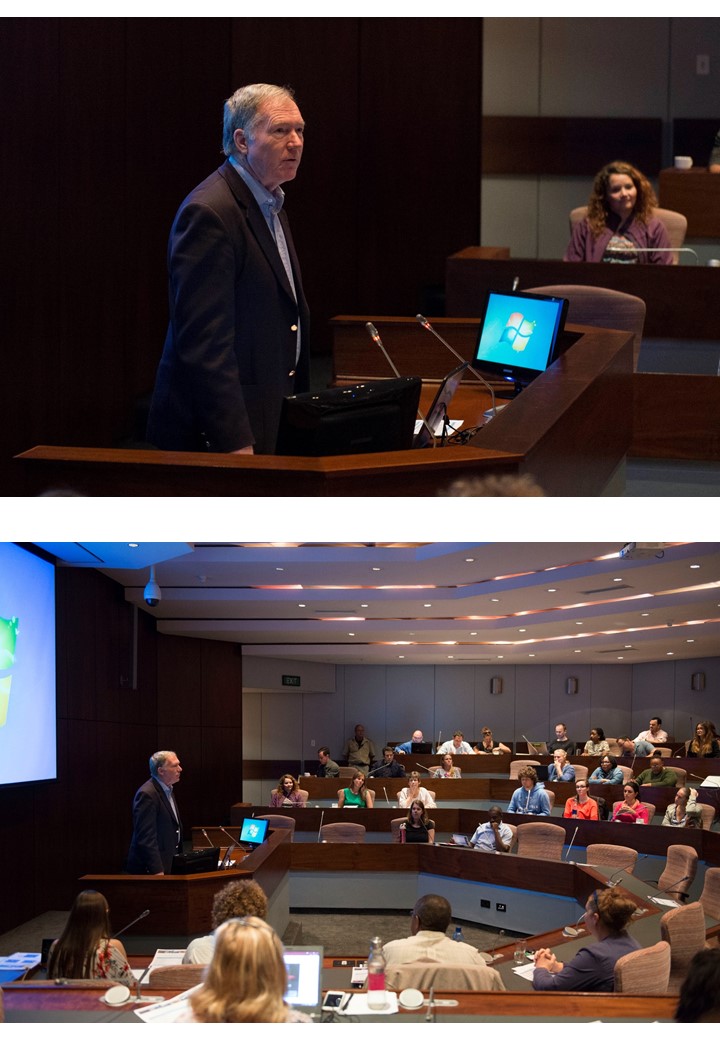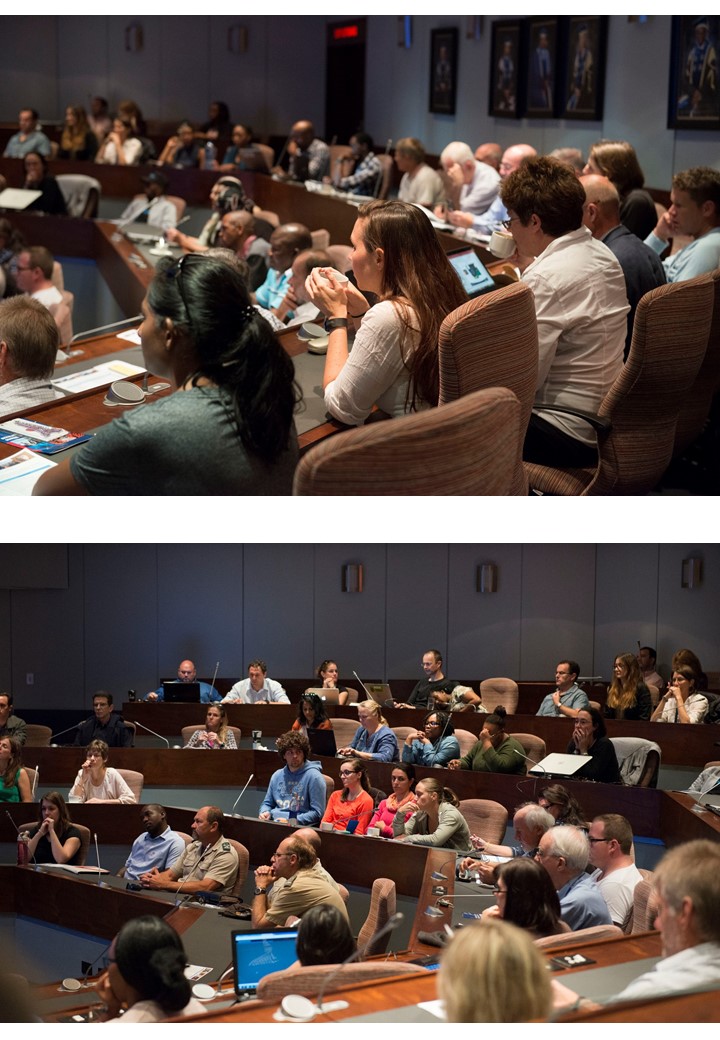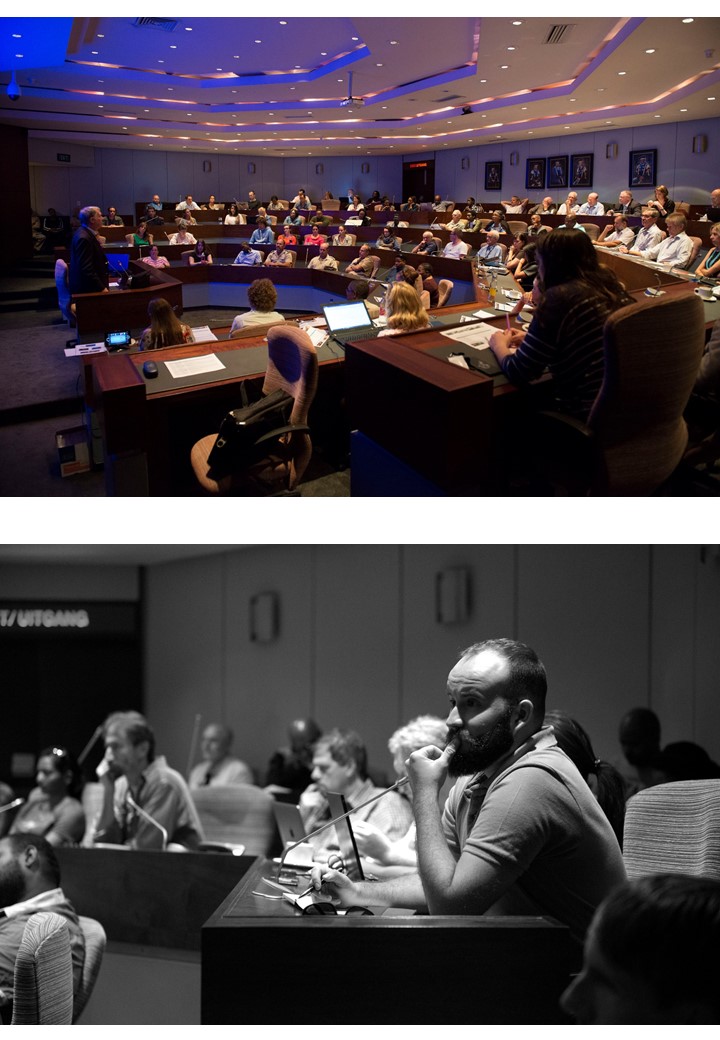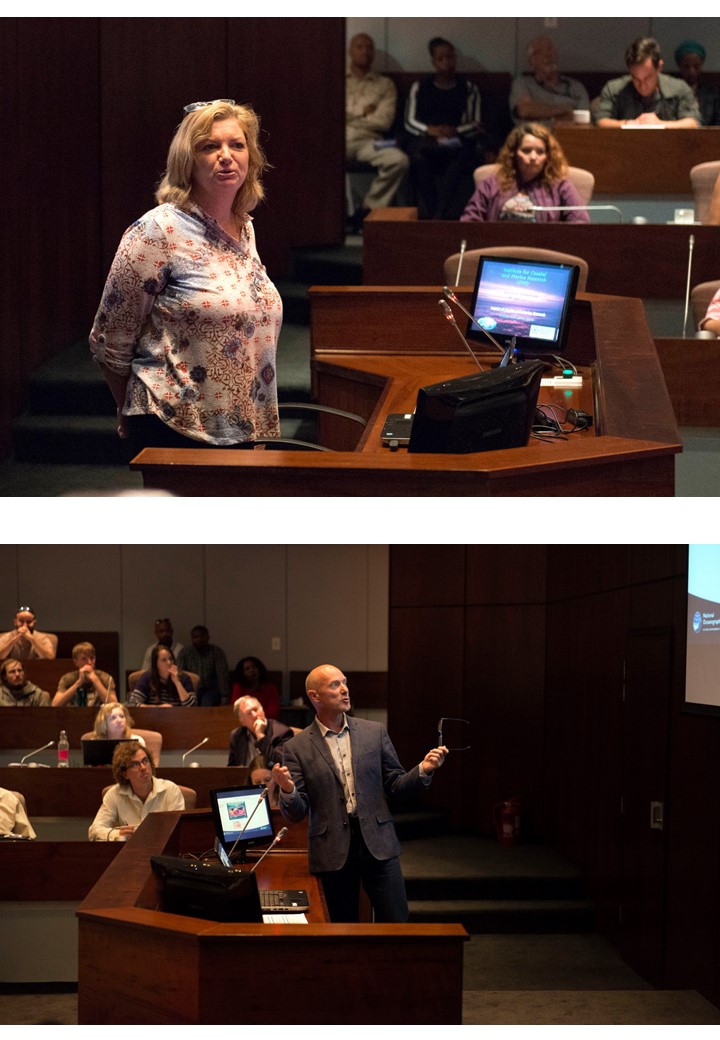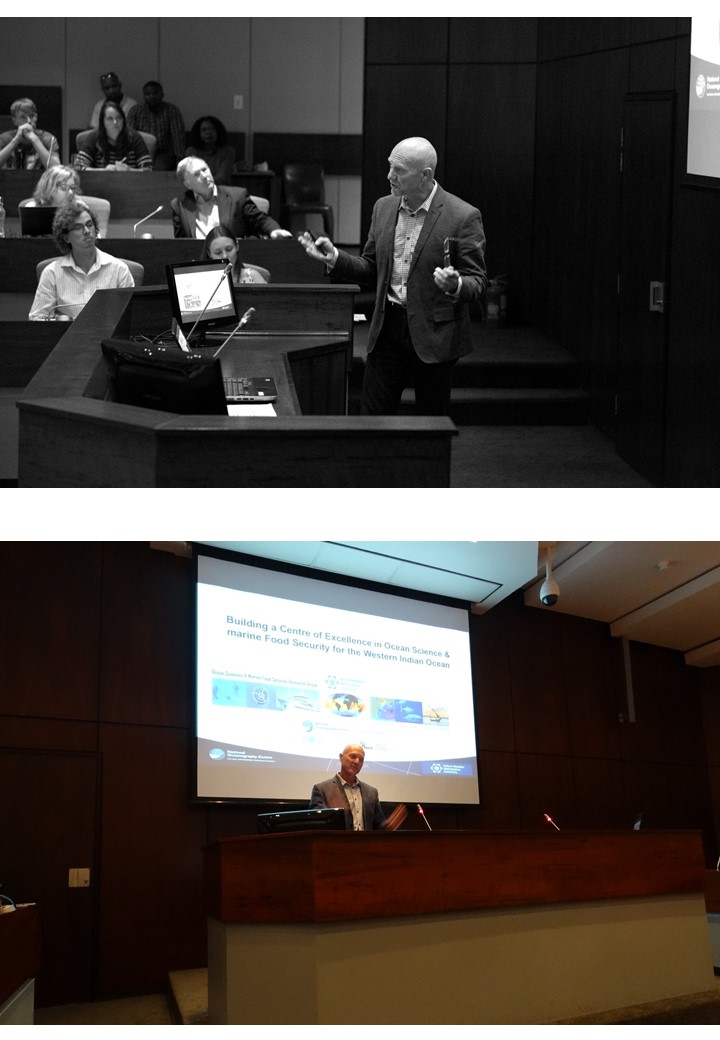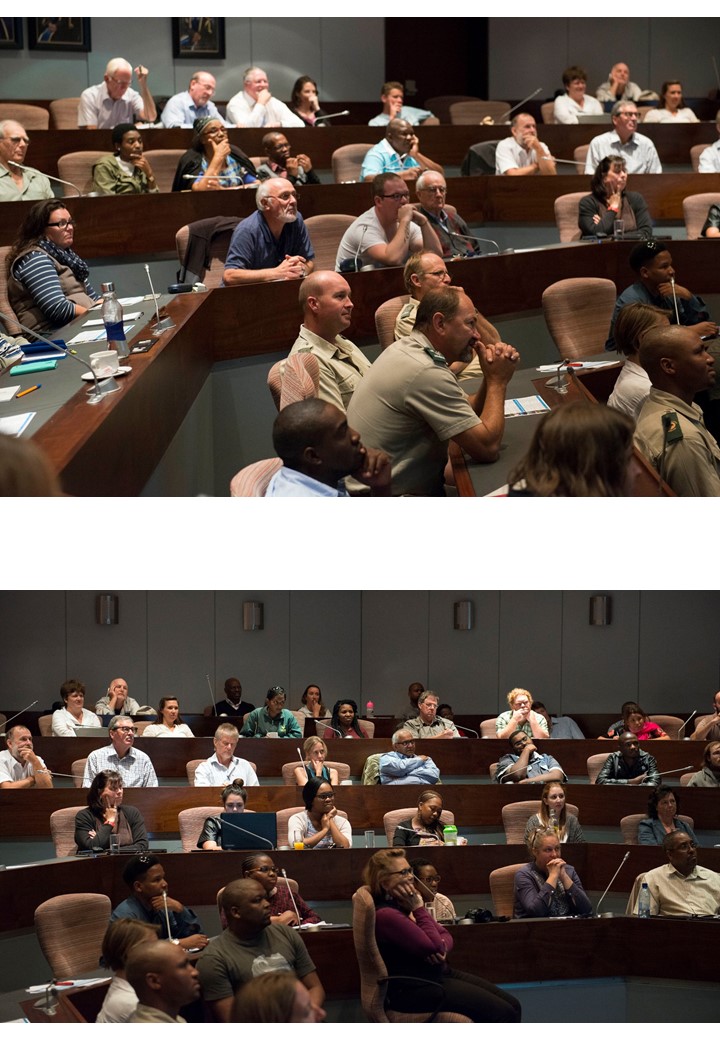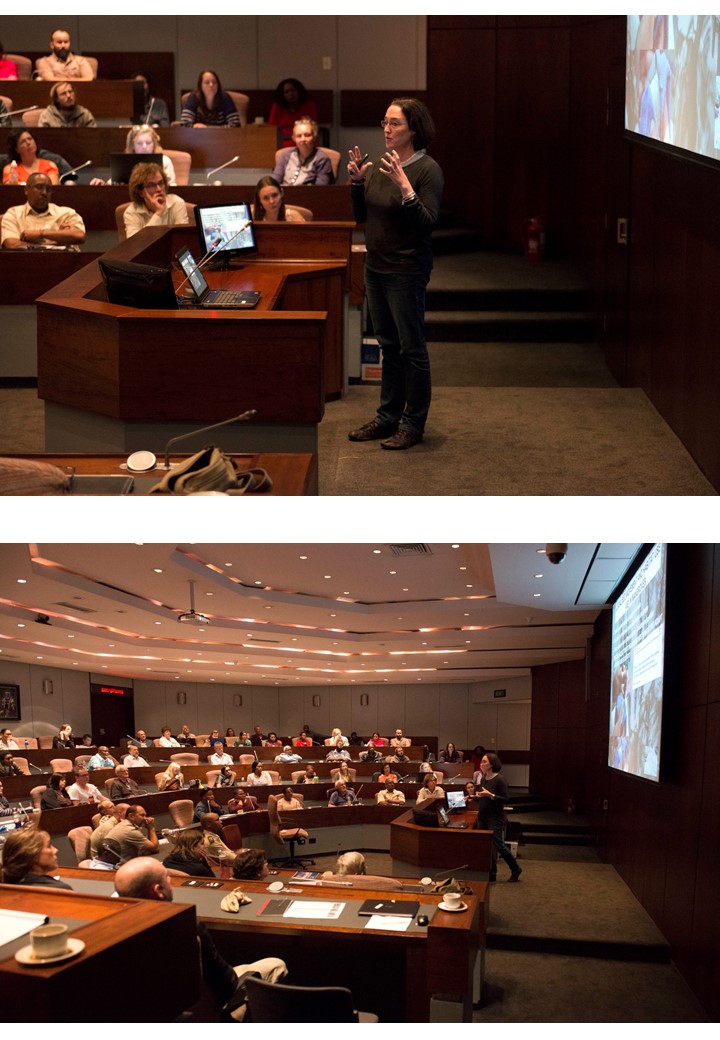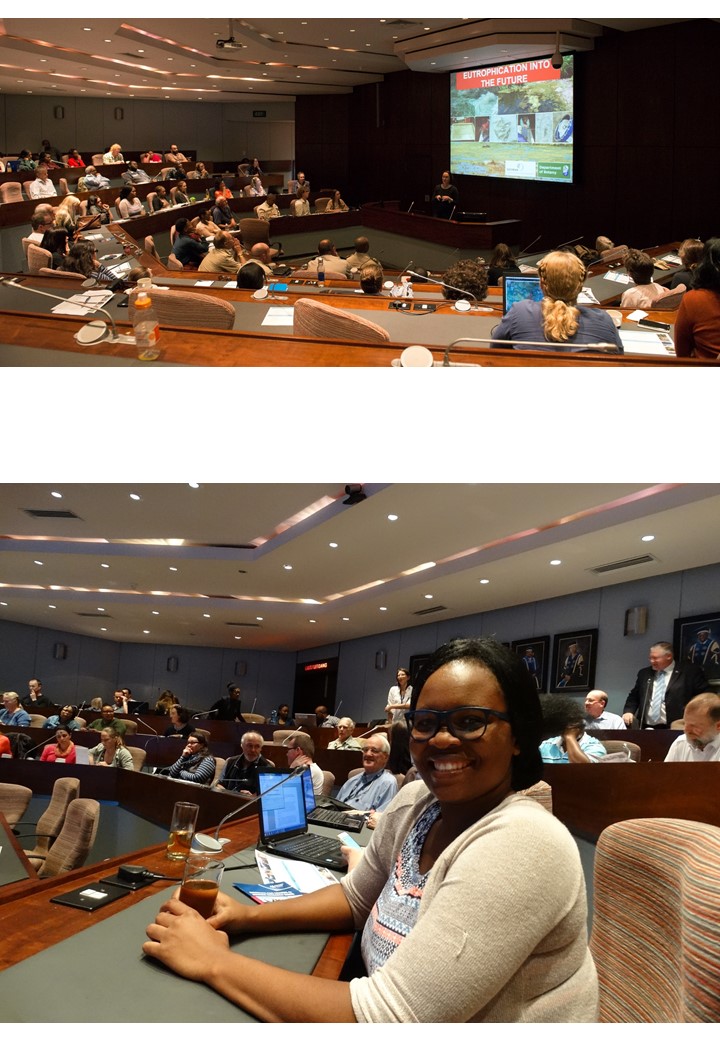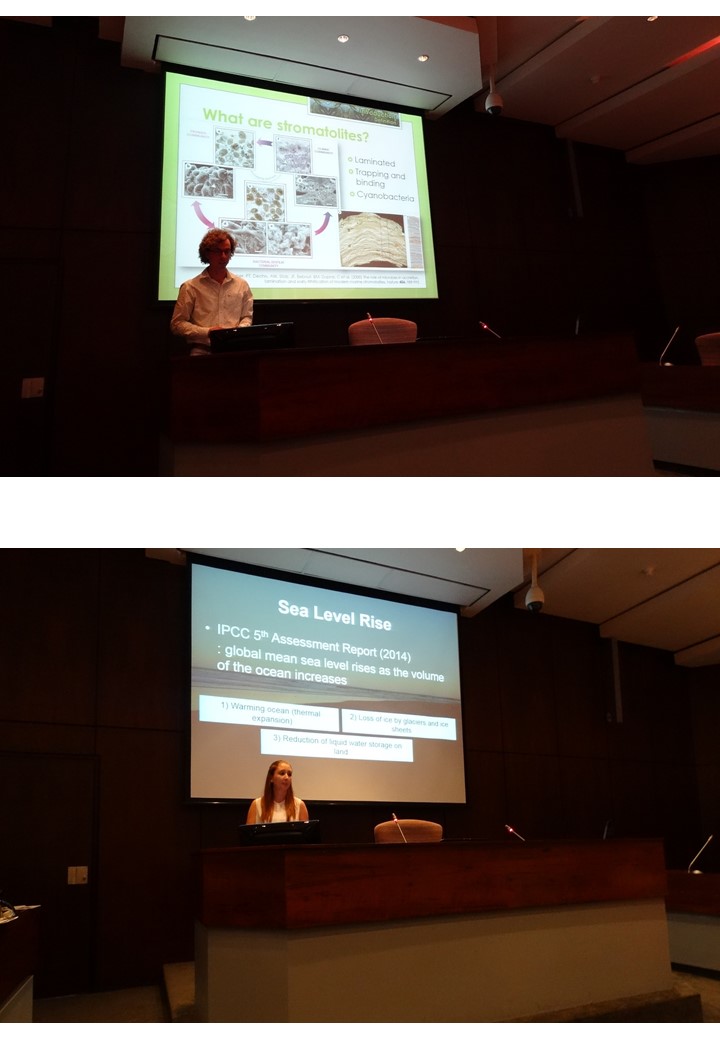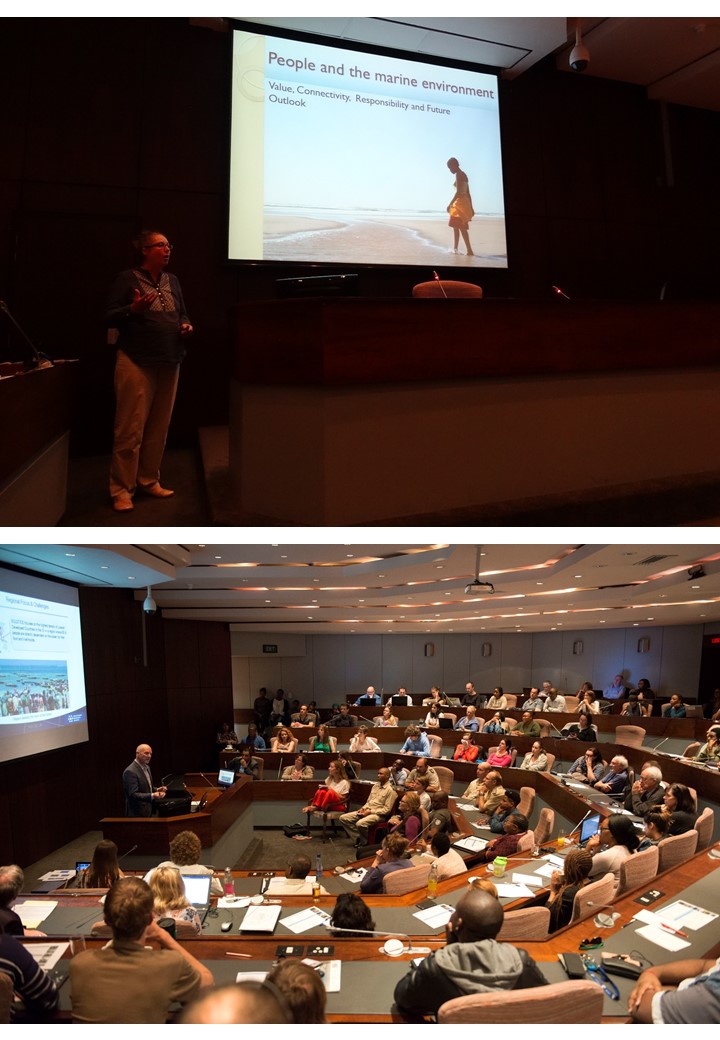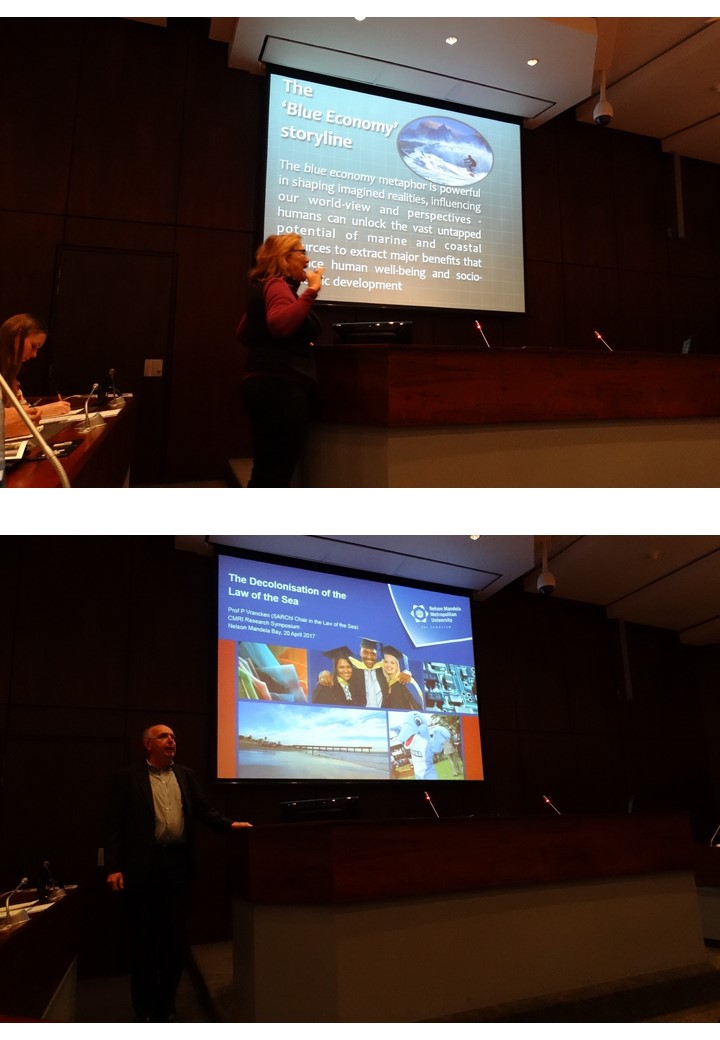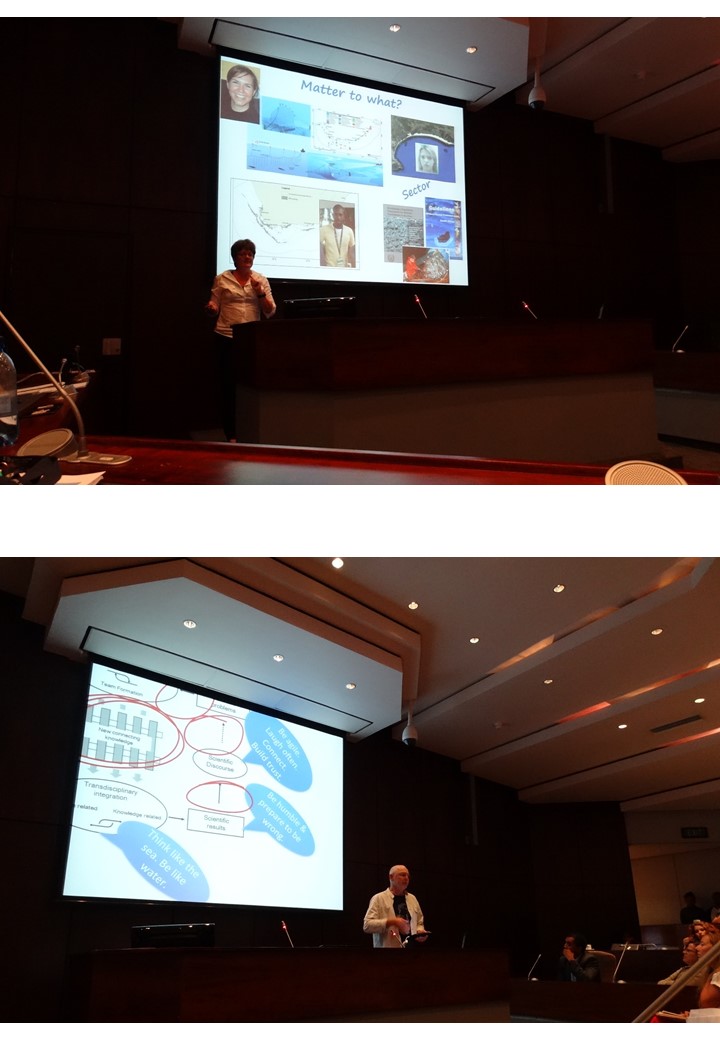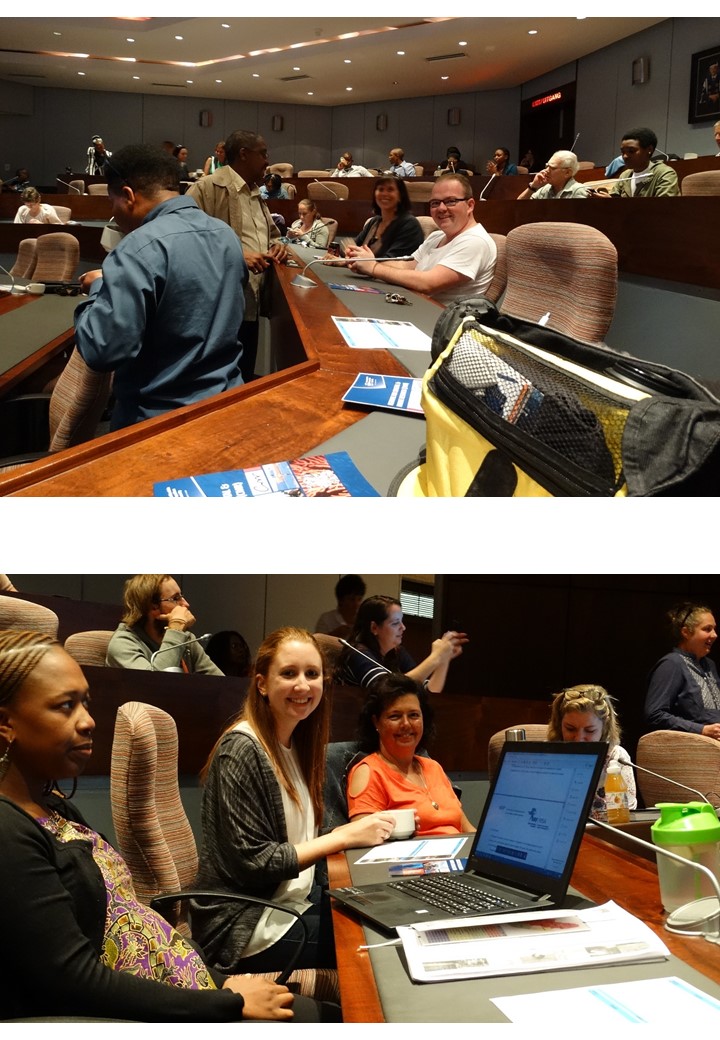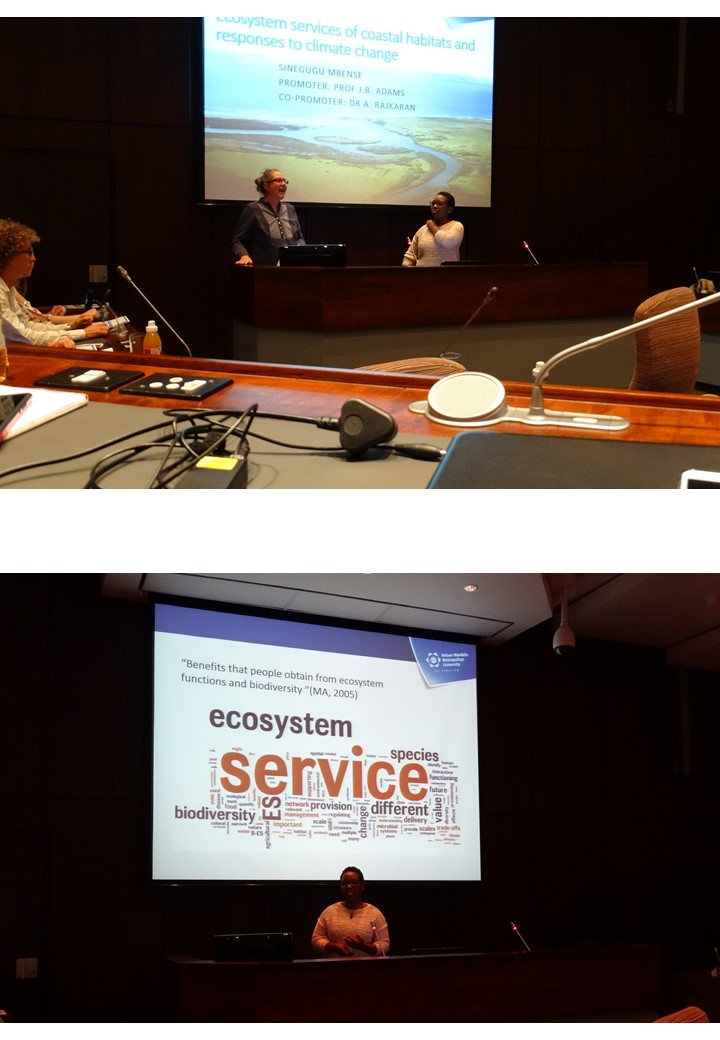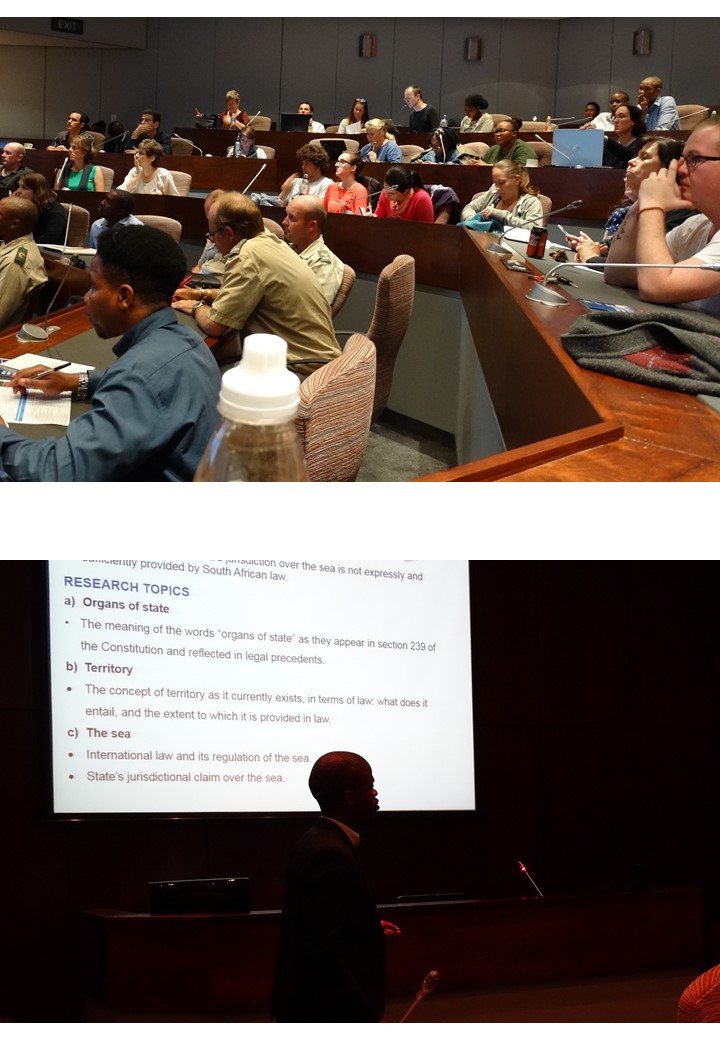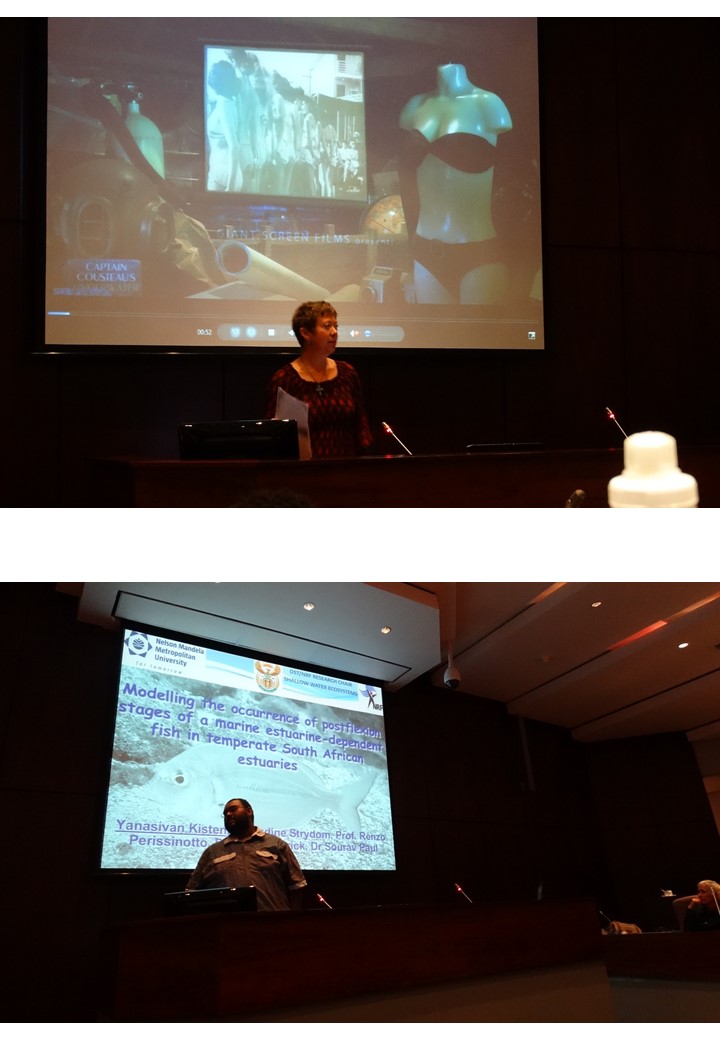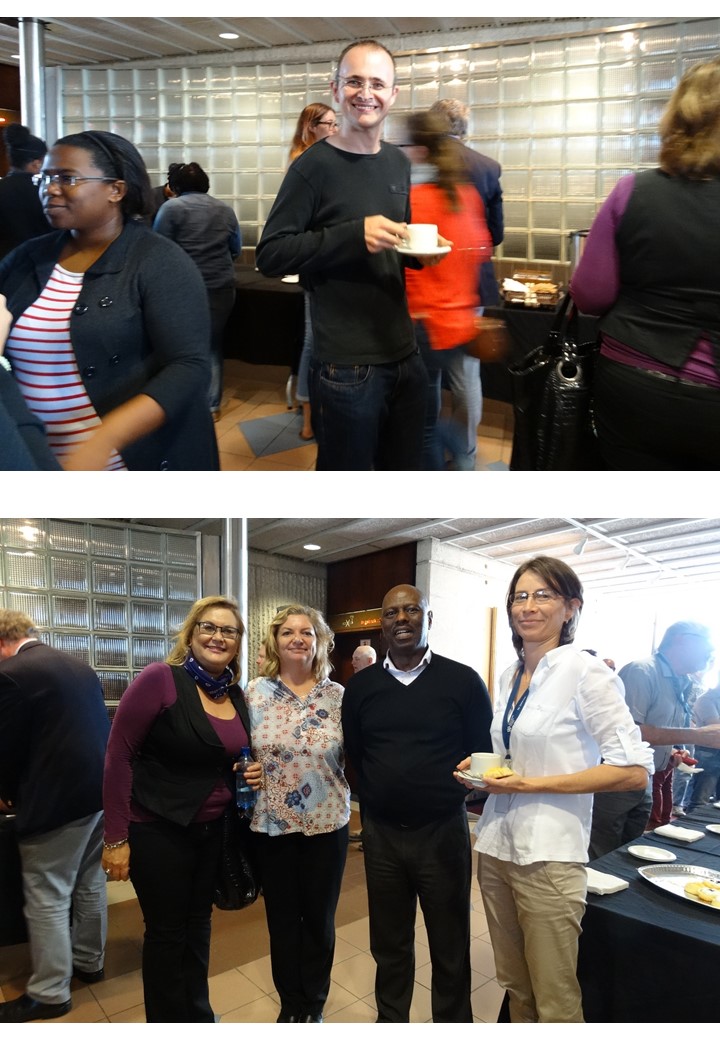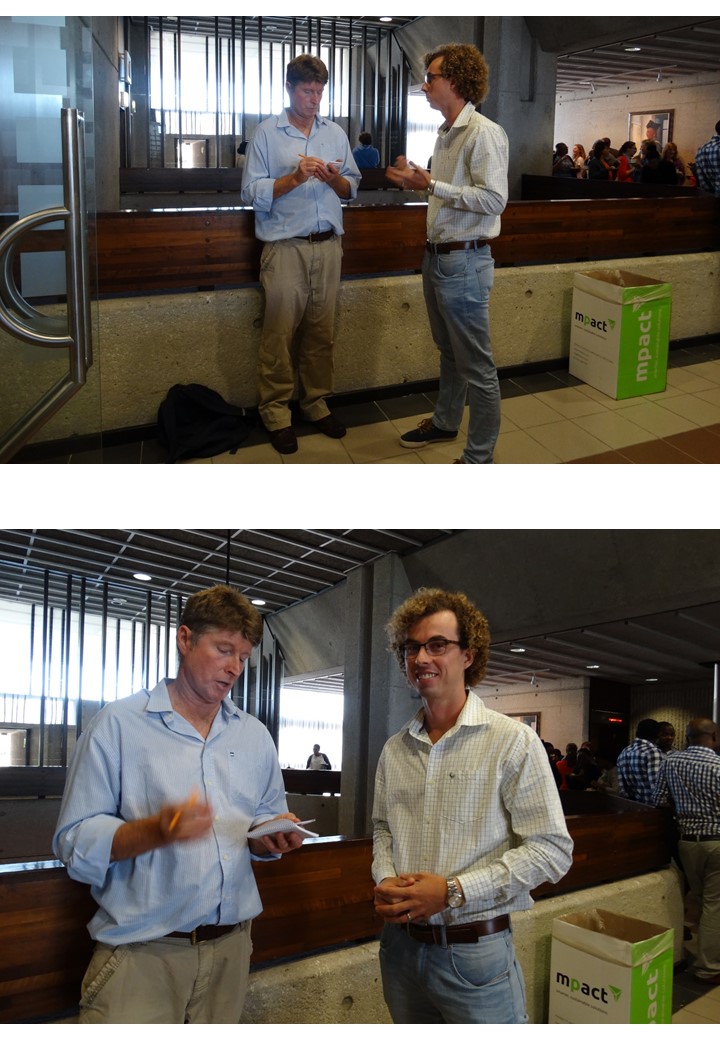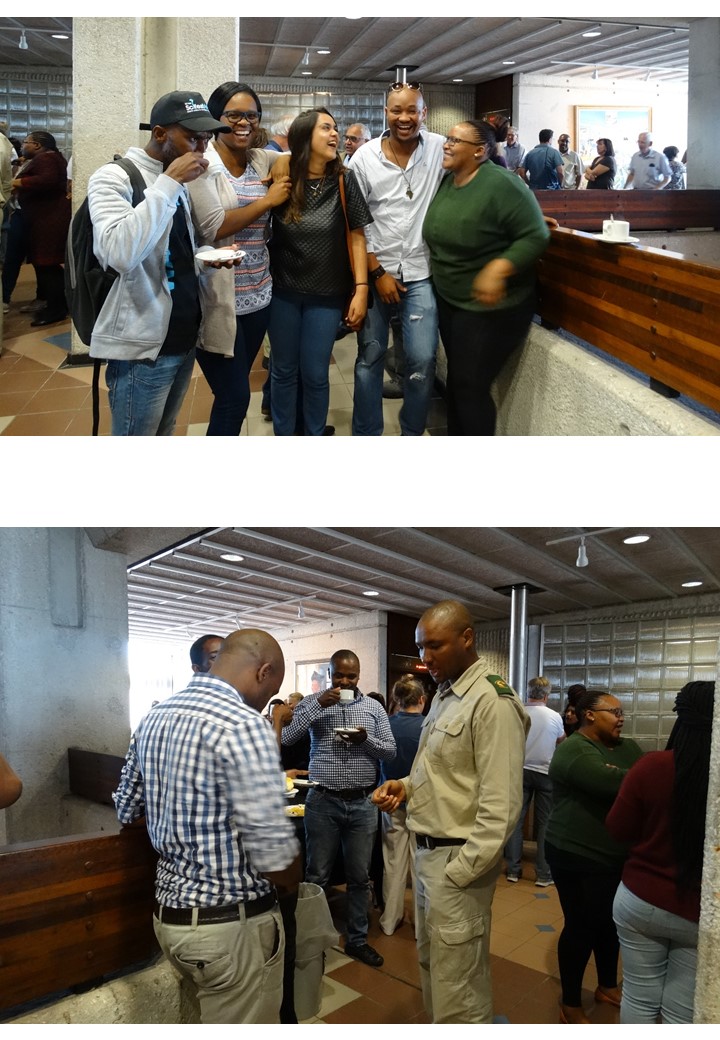Marine spectra unite at CMR Symposium
The CMR hosted a hugely successful Symposium on 20 April 2017. The objective of the Symposium was to showcase the impact of research accross disciplines and Faculties, and to identify opportunities for collaboration within the CMR's three Research Themes: Living Resources and Food Security, Biodiversity and Conservation, and Global Change.
Since 2016, the CMR has been a University-wide Institute outside of the Science Faculty. This Symposium was the first large, public event arranged by the CMR since its re-establishment and it was attended by not only NMMU staff and students, but also by external stakeholders from the Nelson Mandela Bay Metro, the Department of Agriculture, Forestry and Fisheries, DEDEAT, NRF-SANCOR, SANParks, Rhodes University, SAEON, SAIAB, consulting companies and others. Of the six NMMU Faculties that fall under the CMR, four were represented at the Symposium. These were: Arts, Business and Economic Science, Law and Science.
The Symposium programme was packed with 23 presentations of 10 minutes each that were related to the coastal environment and marine issues. The presenters were top CMR academics and post-graduate students from the Departments of Botany, CEO Management, Development Studies, Law, Political and Confilict Studies, Sociology and Anthropology and Zoology. Four SARChI Chairs fall within the CMR, and each was represented at the Symposium. In addition, presentations from the Centre for Coastal Paleoscience (CCP), the Sustainability Research Unit (SRU, based in George), the Marine Apex Predator Research Unit (MAPRU) and SAEON were also delivered. Prof Andrew Leitch (DVC: Research & Engagement) opened the day with a welcoming speech, and he elaborated on the importance of the cross-Faculty and multi-disciplinary research done by CMR members, especially in light of the move to the new Ocean Sciences Campus later in 2017.
Highlights from the day were learning about the living stromatolites on NMMU's doorstep, and finding out about the Eastern Cape Abalone Ranching Project and how this can influence industry. Prof Mike Roberts, SARChI Chair: Oceanography and Food Security, had a 30 minute session to discuss his exciting new programme, called SOLSTICE (Sustainable Oceans, Livelihoods and Food Security through Increased Capacity in Ecosystem Research in the Western Indian Ocean). Furthermore, the Law Faculty was well represented by Prof Patrick Vrancken (SARChI: Law of the Sea) and two LLM post-graduate students that brought the very interesting and different perspectives of ocean governance to the Symposium. Ms Barbara Kritzinger's background video on coral reefs and her essay on examining the symbolic representations of rivers and seas appealed to the creative side of all in attendance. The CMR is fortunate to count Prof Nadine Strydom, recipient of the NMMU Researcher of the Year Award for 2016, as one of its active members. Prof Strydom presented on the current advances in early stage fish research at NMMU.
The NMMU VC, Prof Derrick Swartz, was able to join the Symposium for a brief period and he was astounded that the 90-seater NMMU South Campus Council Chamber was filled to capacity, with people sitting on additional seating along the side of the venue during all three sessions. Many compliments and comments of appreciation were received:
"Thank you for a most interesting meeting. Very well run and definitely something that should be held annually."
"Symposium showcased 'the depth of intellectual enquiry and the drive towards a multi-disciplinary approach' that is taking place in the Institute."
"I really enjoyed the day, seeing the large variety of work CMR/NMMU is doing in the marine environment."
"Just wanted to congratulate you and the team on an outstanding success with the Symposium yesterday - it was truly impressive and a feather in the cap for marine science at NMU."
"The Sympsoium was well organised and a great experience. It combined an emphasis on empirical rigour within an informal yet respectful atmosphere. Good for emerging Researchers to get their feet wet."
After the success of this Symposium, the CMR plans to make this an annual event.
Operation Phakisa opens up many opportunities for the CMR, as is evident when a range of experts from such a wide field of expertise come together to see how collaborations on marine and coastal projects can be forged. The CMR is continually identifying gaps in knowledge and research, and this is why much effort is put into investigating and planning aquaculture ventures through the Living Resources and Food Security Research Theme in an attempt to contribute to the goals set by Operation Phakisa. The SARChI Chair in Marine Spatial Planning (under the leadership of Prof Amanda Lombard), alongside the development of the Marine Spatial Planning Masters programme, could also play a part in meeting Operation Phakisa targets. Furthermore, many CMR members act as consultants in their various fields, and collaborations with specialists in many disciplines need to be established in order to develop South Africa's Blue Economy in a sustainable manner.
Please refer to the sidebar for all the documents related to the Symposium. The presentations, as well as contact details for the presenters, have been made available for download here. The Symposium Save the Date, Invitation and Programme can be found here too. Leonette Bower and Sinegugu Mbense are thanked for the photographs.
